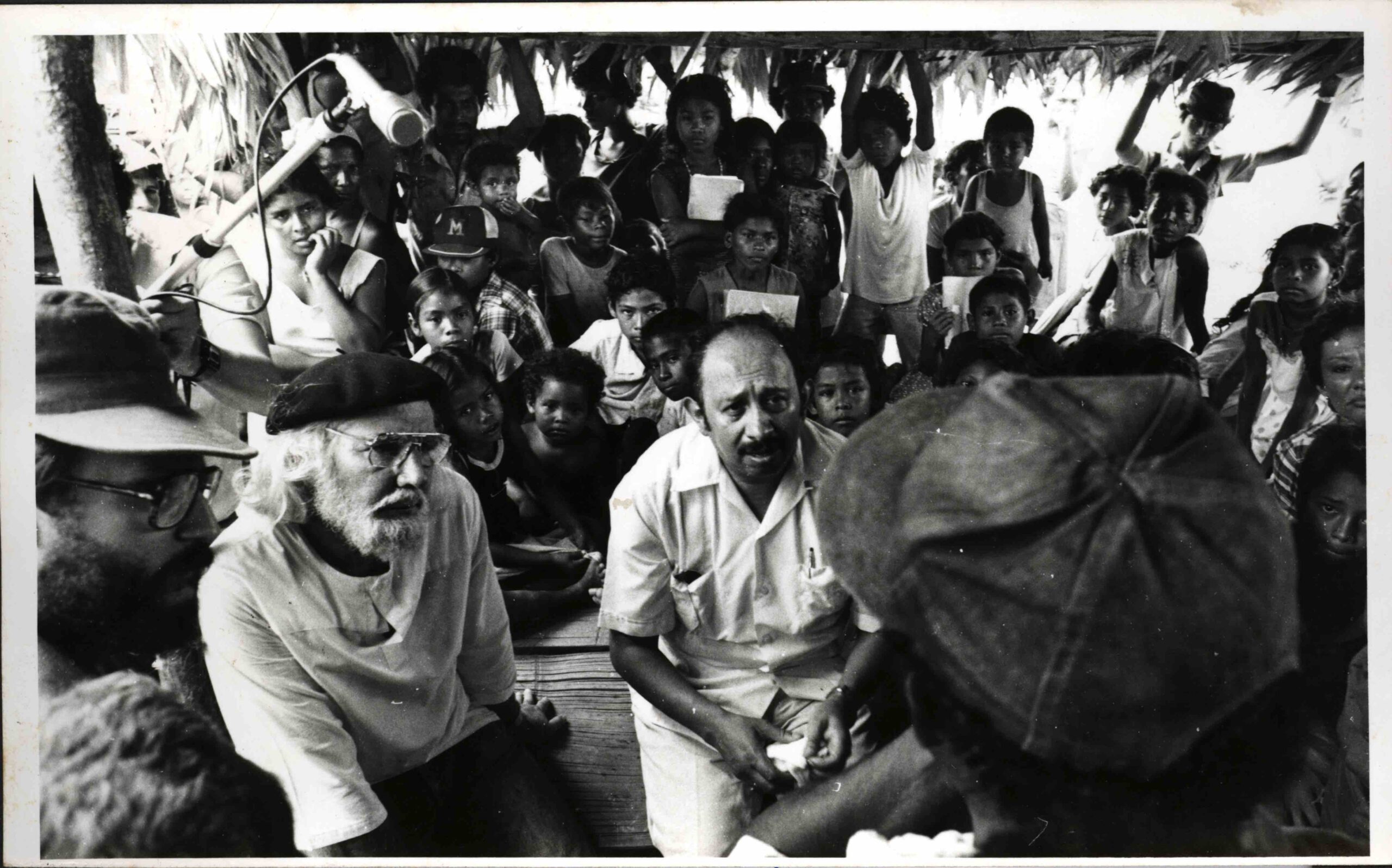Ernesto Cardenal, the Nicaraguan poet, priest, and revolutionary, died in Managua on Sunday, March 1. He was 95.
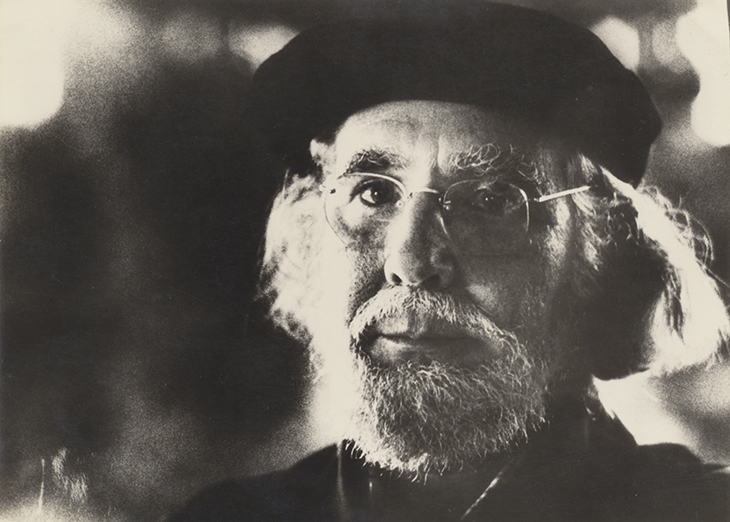
Admired and controversial, Cardenal was a towering figure in Central American culture and politics. As Nicaragua’s minister of culture under the Sandinista government, which took power in 1979, he oversaw a national program that taught poetry to Nicaraguans of all ages and all walks of life.
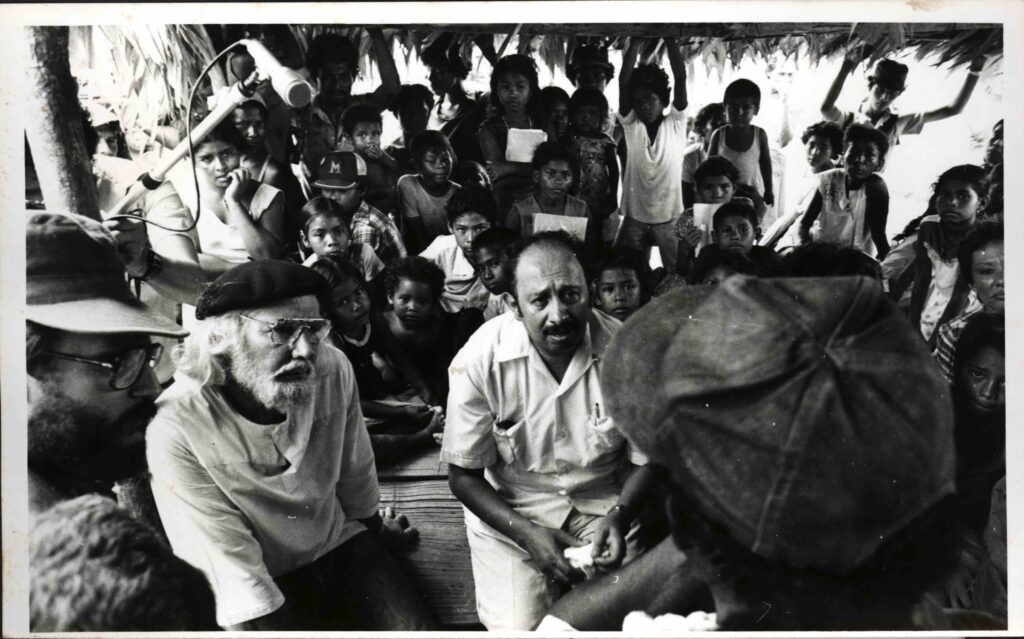
As a priest, ordained in 1965, Cardenal defied the Vatican of Pope John Paul II by embracing liberation theology and joining the Sandinista revolutionary armed conflict. His priestly authority was revoked by Nicaragua’s bishops in 1985. Pope Francis absolved Cardenal of “all canonical censorships” in February 2019.
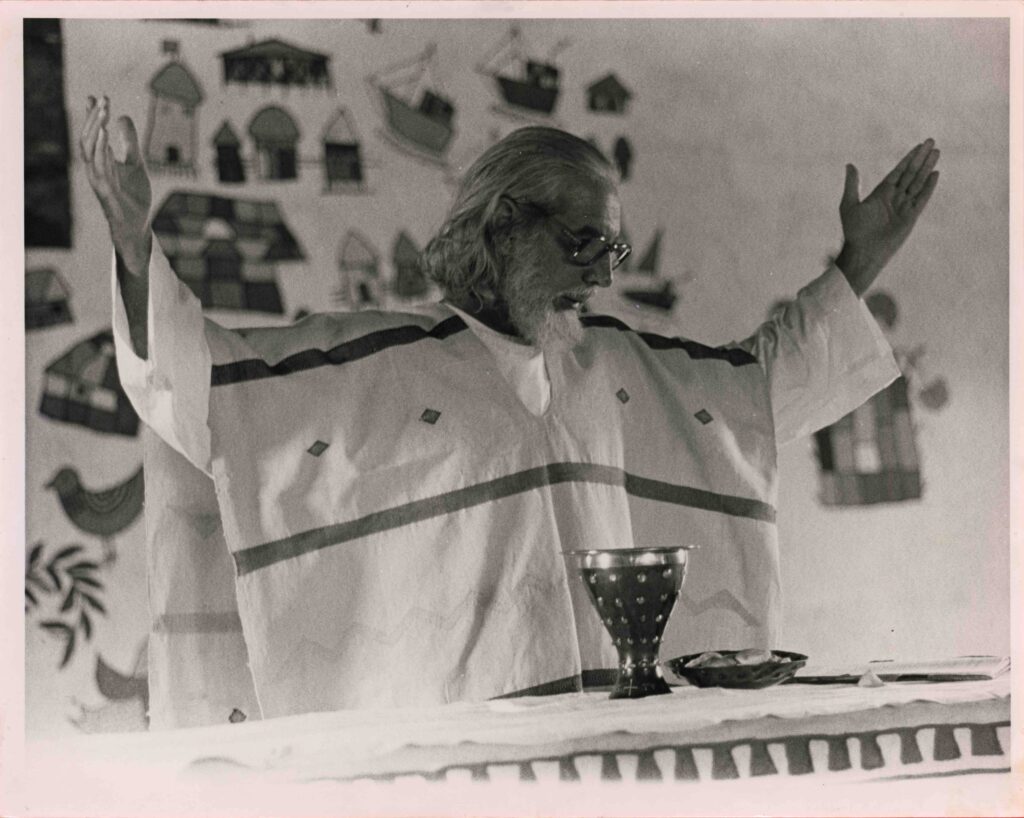
Cardenal’s long and rich life can almost be said to be several lives rolled into one. His spiritual path would take him in the 1950s to Gethsemani, the Trappist monastery in Kentucky, where he met and befriended monk and writer Thomas Merton. In the 1960s, he founded an artistic and spiritual community in the Solentiname archipelago in Nicaragua, where he taught literature and painting. He fought in the Nicaraguan Revolution to depose dictator Anastasio Somoza Debayle, and serving in the Sandinista government, Cardenal left the Sandinista party in 1994 and became highly critical of President Daniel Ortega.
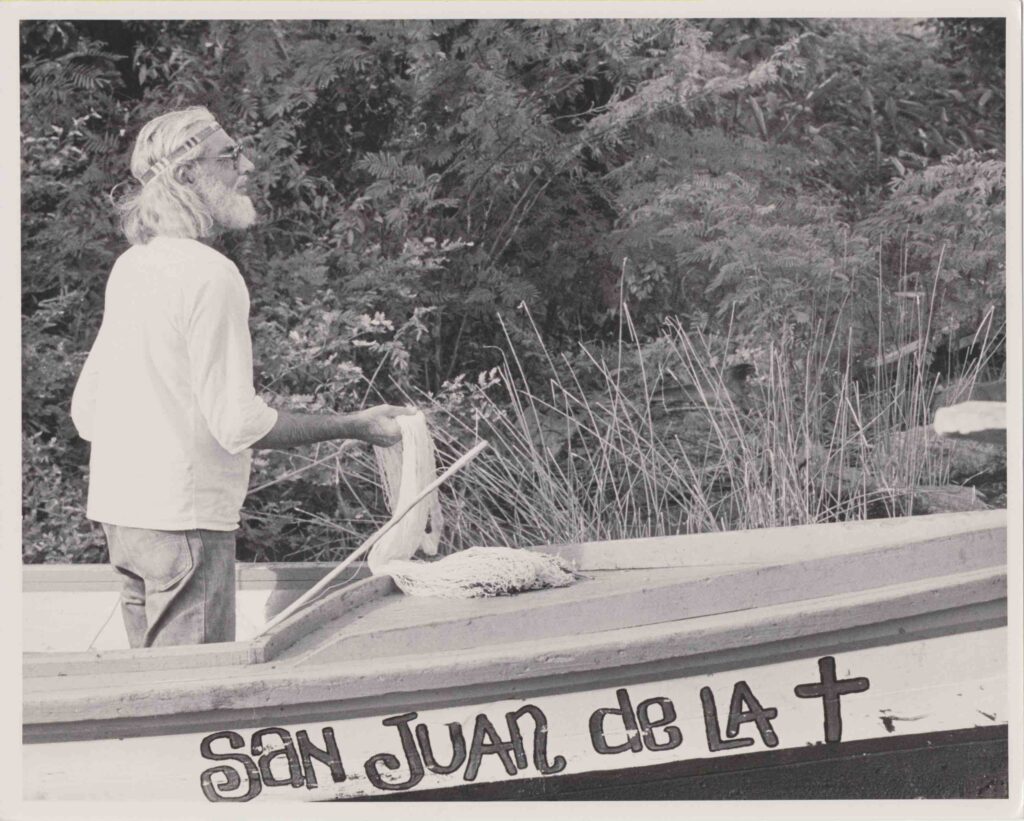
In 2016, the Nettie Lee Benson Latin American Collection at The University of Texas at Austin acquired the Ernesto Cardenal Papers, an extensive archive consisting of correspondence, writings by Cardenal, newspaper clippings and writings by others related to Cardenal, photographs, biographical materials, and audiovisual materials.
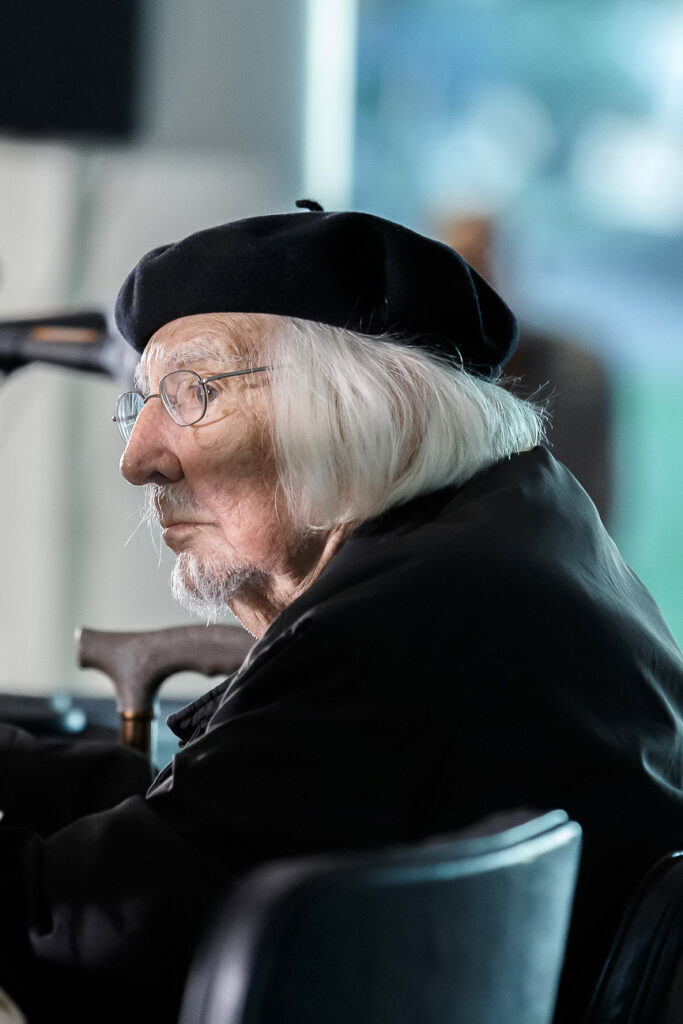
“We are honored that Ernesto Cardenal chose the Benson Collection as the permanent home for his personal archive. Already, students and scholars from around the globe have been able to consult the materials for their research. We know this accessibility was important to Father Cardenal, and we are committed to the preservation of his life’s work,” said Melissa Guy, director of the Benson Collection.
Virginia Garrard, director of LLILAS Benson Latin American Studies and Collections, and professor of history and religious studies, knew Cardenal personally and has long been inspired by him. “Ernesto Cardenal was a fighter: for justice, against dictatorship, for equality, for his faith, and for the power of art and beauty to shine light in a dark world. He was tireless in this lifelong struggle, striving until his final days for a better Nicaragua and true justice for all people. LLILAS Benson is proud to help to carry on his legacy,” Garrard said. (LLILAS Benson is a partnership between the Benson and the Teresa Lozano Long Institute of Latin American Studies, or LLILAS, established in 2011.)
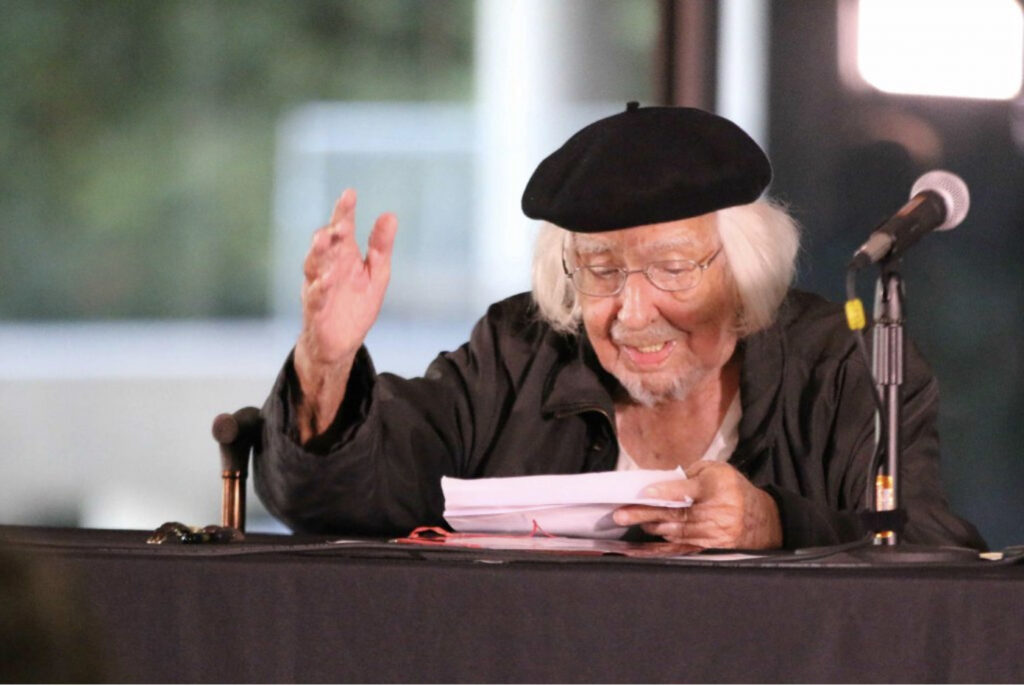
Cardenal visited the UT Austin campus in November 2016 to celebrate the opening of his archive with a poetry reading before a packed house. During his stay, he was also able to view some of the Benson’s archival treasures and visit with students in a more intimate setting. In honor of the Cardenal archive, and of LLILAS Benson’s emphasis on Central American scholarship and collections, Garrard established Cátedra Ernesto Cardenal, which sponsors a yearly symposium on a topic relating to Central America, and funds research visits to the collection.
Cardenal’s connection with the Benson opened the door to unprecedented access to the man himself, and he granted an interview to former Benson librarian José Montelongo in spring of 2016. Excerpts of the interview, in Spanish with English subtitles, can be viewed at Interview with Ernesto Cardenal.
In 2017, LLILAS Benson published Spanish and English versions of a poignant essay by Professor Luis Cárcamo-Huechante, who discusses the impact of Cardenal’s writings on him as a young man growing up during the Chilean dictatorship. (Read “Cardenal in Hard Times” / “Cardenal en tiempos difíciles.”)
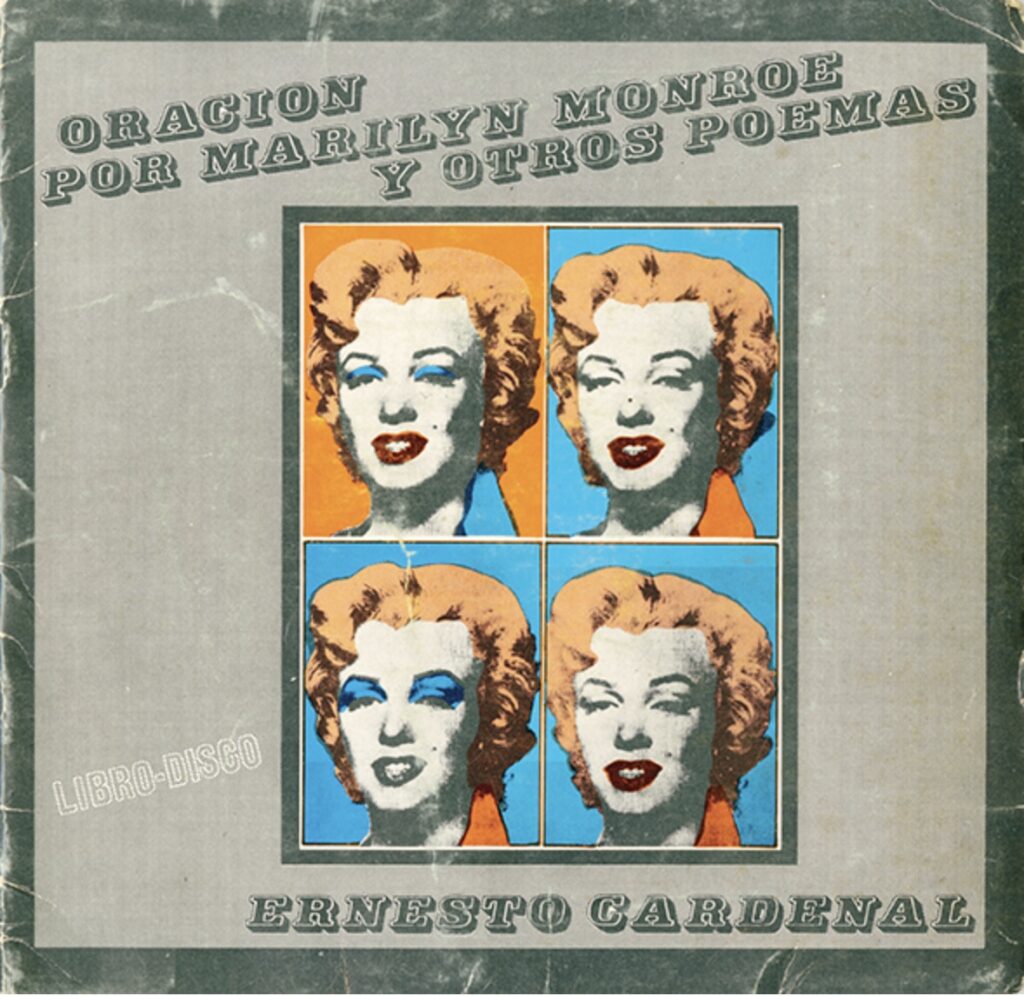
“It is an extraordinary gift that Cardenal’s papers arrive at the Benson Latin American Collection, in Austin, Texas,” Cárcamo-Huechante wrote. “And it is likely that once again, Cardenal’s writings, and the ethical, political, spiritual, poetic, and human voice that resonates in them, will accompany us at these latitudes of the planet, in the hard times that seem to be upon us.”
For more information, contact Susanna Sharpe, ssharpe@austin.utexas.edu, 512-232.2403.

